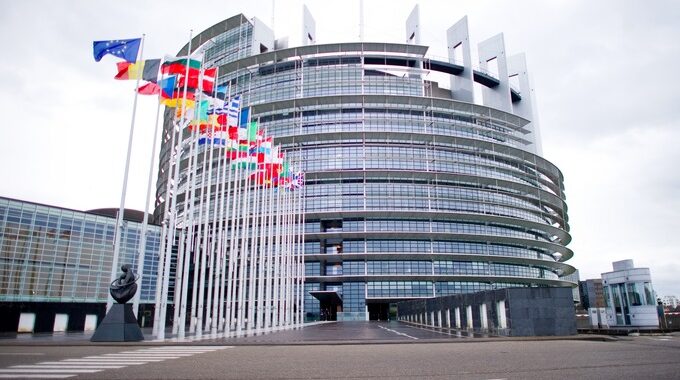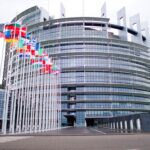The Commission and Kosovo Government representatives discussed a number of policy areas, including Kosovo’s macro-economic development, fiscal and financial policies, structural reforms and private sector development, the statistical system and financial control. The Commission stressed the importance of implementing the adopted Joint Conclusions on the 2020-2022 Economic Reform Programmes, which target structural challenges exacerbated by the COVID-19 pandemic and aim at stimulating economic recovery in the short- and medium-terms.
In the area of economic and fiscal policies, the key economic developments were discussed including GDP growth, inflation, the labour market and the external competitiveness; as well as the current and expect fiscal and economic outcomes of the August Economic Recovery Programme, which extended the April Emergency Package. While Kosovo’s economic growth held-up well in 2019, at 4.2% of GDP, most estimates put the expected downfall in GDP figures at 5% this year as a direct result of the COVID-19 pandemic crisis. Current estimates put forward a protracted recovery for Kosovo, with a return to pre-COVID-19 real GDP levels expected by early 2022 at the earliest. The EC called to consider more realistic GDP outlook projections, which would be in line with the consensus forecast. In the context of the COVID-19 pandemic economic shutdown, the Commission asked for additional clarifications about its impact on the labour market and the labour force.
The Government presented the outlook for fiscal policies, reflecting the projections of the Medium Term Expenditure Framework (MTEF), adapted to the current COVID-19 context – which has made most past estimates obsolete. The EU side underlined the importance of adhering to the ERP policy guidance and expressed concerns with respect to rising current spending, decreasing levels of revenues, under-execution of capital budget, as well as mounting fiscal risks and the repercussions that the continued diminishment of existing capital reserves. In the context of COVID-19 crisis and the subsequent recovery, the Commission recalled the need of preserving macro-fiscal stability by respecting the spending and deficit limits prescribed by fiscal rules taking into account the temporary flexibility of responding to the pandemic impact. The Commission also stressed the need to maintain adequate levels of reserves, ideally at above 3 months import level, in order to contain any future risks related to revenue collection. As regards the financial sector, discussions took place on the latest developments in the banking and insurance sectors.
The authorities presented the state of play of key structural reforms in sectors such as business environment, energy, and privatisation. The EU side invited the authorities to refrain from adoption of any new pension and social initiatives pending the review of all existing social schemes and assessing their long-term fiscal implications. Furthermore, the EU side asked to be continually informed on the developments in the ongoing privatisation process of Publicly-Owned Enterprises (POEs) and Socially-Owned Enterprises (SOEs).
The Commission took note of the progress made on other structural reforms, and stressed the need to address pressing issues currently exacerbated by the COVID-19 pandemic. The EU side underlined that fostering private sector development, strengthening productivity and creating jobs should guide Kosovo’s reform agenda.
In the area of statistics, the Commission pointed to the need for the Kosovo Agency of Statistics (KAS) to follow up and ensure the implementation of the Law on Statistics. The resource situation for production of Official Statistics in Kosovo was discussed also in view of data requirements and their timeliness, as well as the strengthening of KAS administrative capacity. The discussion also focused on the requirement to strengthen national accounts, and for this purpose also business statistics, and its eventual sharing with European databases under Eurostat. Efficient collection and publication of statistics is a priority for evidence-based policy. The Commission underlined the need to pursue the necessary preparations for Census 2021, especially related to methodology and allocating necessary funding, as well as possible contingency plans and additional safety measures in the context of COVID-19.
In the area of Financial Control, the recent developments in the Public Internal Financial Control were discussed. It was pointed out that attention should be paid to ensuring comprehensive Public Internal Financial Control and Public Finance Management and Public Administration Reforms. The Commission underlined the need of strengthening the Parliament and Government oversight and monitoring function to ensure implementation of the external audit recommendations, as well as to ensure the implementation of legislation on the independence and status of financial officers and internal auditors in budget organisations. and auditors of the National Audit Office (NAO).
The meeting was co-chaired by the Department of Economic Criteria and Internal Market at the Office of the Prime Minister; and the European Commission Directorates-General for Economic and Financial Affairs, and the one on Neighbourhood and Enlargement Negotiations.
Background information
◦The Stabilisation and Association Agreement is the framework for the EU and the Kosovo administration to regularly discuss technical and policy issues in relation to the European agenda.
◦SA Committee and Sub-Committee meetings are co-chaired by the European Commission and Kosovo. Each meeting results in jointly agreed follow-up actions to be taken by the Kosovo authorities. The conclusions from the meetings are available on the website of the EU Office in Kosovo (https://eeas.europa.eu/delegations/kosovo_en and www. https://www.mei-ks.net.). There are seven areas covered through sectorial meetings of sub-Committees, on Justice, Freedom and Security; Innovation, Information Society, Social Policy, Education and Culture; Trade, Industry, Customs and Taxation; Internal Market, Competition, Consumer and Health Protection; Agriculture, Fisheries, Forestry, Food Safety; Transport, Environment, Energy, Regional Development; Economic and Financial Issues, Statistics. Two Special Groups cover the reform of the public administration and normalisation of relations with Serbia.
◦Each sub-Committee meeting monitors and accompanies Kosovo’s delivery on reforms and identifies how the EU can assist in this process. The meetings also provide direct input into the European Commission’s annual reports.
Last modified: August 4, 2022











https://dmitrovbeton.com/price
https://odincovobeton.com/
https://rbz-domodedovo-beton.ru/
бетон м150 заказать
бетон в балашихе купить с доставкой цена
… [Trackback]
[…] Info to that Topic: integrimievropian.rks-gov.net/en/european-commission-and-kosovo-authorities-discuss-economy-statistics-and-structural-reforms/ […]
Enjoyed every bit of your post.Thanks Again. Keep writing.
… [Trackback]
[…] There you can find 14015 additional Information on that Topic: integrimievropian.rks-gov.net/en/european-commission-and-kosovo-authorities-discuss-economy-statistics-and-structural-reforms/ […]
Hey! Do you use Twitter? I’d like to follow you if that would be okay.
I’m definitely enjoying your blog and look forward to new updates.
… [Trackback]
[…] Information to that Topic: integrimievropian.rks-gov.net/en/european-commission-and-kosovo-authorities-discuss-economy-statistics-and-structural-reforms/ […]
… [Trackback]
[…] Info on that Topic: integrimievropian.rks-gov.net/en/european-commission-and-kosovo-authorities-discuss-economy-statistics-and-structural-reforms/ […]